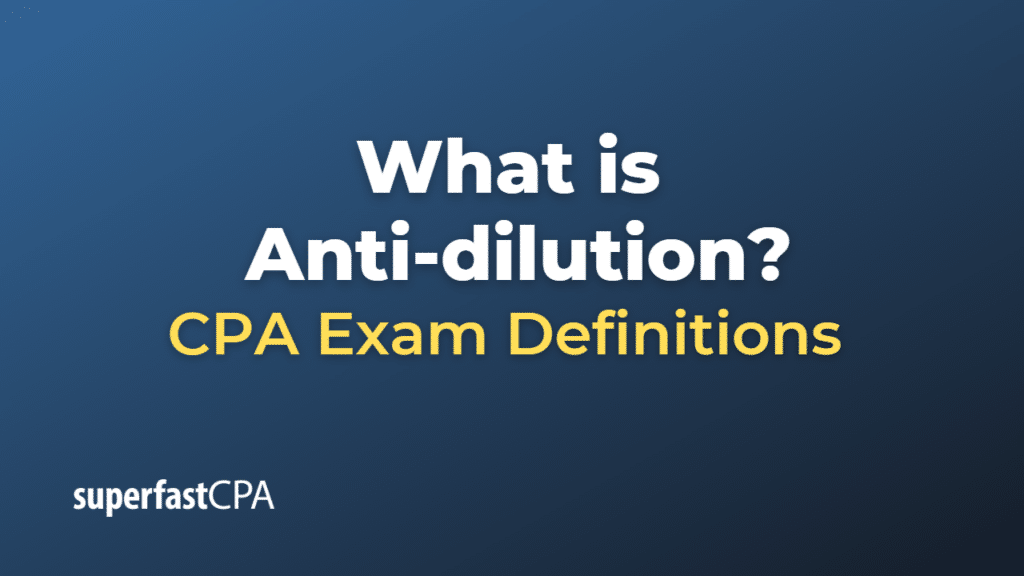Anti-dilution
Anti-dilution is a provision or clause in an investment agreement that protects investors from dilution of their ownership stake in a company. Dilution occurs when a company issues more shares, typically during additional rounds of funding or stock option grants, which reduces the percentage of ownership for existing shareholders.
Anti-dilution provisions are designed to maintain the value and proportionate ownership interest of an investor’s shares when new shares are issued. These provisions can be included in shareholder agreements, stock option plans, or convertible security agreements, such as convertible preferred stock or convertible bonds.
There are two common types of anti-dilution provisions:
- Full Ratchet Anti-Dilution: Under this provision, an investor’s conversion price is adjusted to the lowest price at which new shares are issued in subsequent rounds, effectively maintaining the investor’s ownership percentage. This method is more favorable to the investor but can be detrimental to the company’s founders and other shareholders, as their ownership percentage will be diluted.
- Weighted Average Anti-Dilution: This method adjusts the conversion price based on a weighted average of the new issuance price and the number of shares issued. It is considered a more balanced approach, as it takes into account the size of the new issuance and the original investment price, resulting in a smaller dilution effect for all parties involved.
Anti-dilution provisions are an essential consideration for investors and companies during negotiations, as they can significantly impact the value of an investment and the control over the company.
Example of Anti-dilution
Let’s consider a simple example of an anti-dilution provision in action.
Imagine an investor, Jane, who invests $1 million in a startup for a 10% ownership stake. The company has issued a total of 1 million shares, so Jane’s investment buys her 100,000 shares at a price of $10 per share.
Later, the company raises more funding in a down round, issuing an additional 1 million shares at $5 per share. Without an anti-dilution provision, Jane’s ownership would be diluted as follows:
- Total shares outstanding before the down round: 1 million
- Total shares outstanding after the down round: 2 million
- Jane’s ownership stake after the down round: 100,000 / 2,000,000 = 5%
However, if Jane has a full ratchet anti-dilution provision in her investment agreement, her conversion price would be adjusted to the lowest price of the new issuance, which is $5 per share. Therefore, her 100,000 shares would now represent a 10% stake in the company after the down round:
- Jane’s adjusted shares: $1,000,000 (initial investment) / $5 (new share price) = 200,000 shares
- Jane’s ownership stake after the down round: 200,000 / 2,000,000 = 10%
If Jane has a weighted-average anti-dilution provision, her conversion price would be adjusted based on a weighted average of the new issuance price and the number of shares issued:
- Weighted average price: [($10 * 1,000,000) + ($5 * 1,000,000)] / (1,000,000 + 1,000,000) = $7.50
- Jane’s adjusted shares: $1,000,000 (initial investment) / $7.50 (weighted average price) = 133,333 shares
- Jane’s ownership stake after the down round: 133,333 / 2,000,000 = 6.67%
In both scenarios, the anti-dilution provisions help protect Jane’s ownership interest in the company during the down round, though the full ratchet provision is more advantageous to her than the weighted-average provision.













